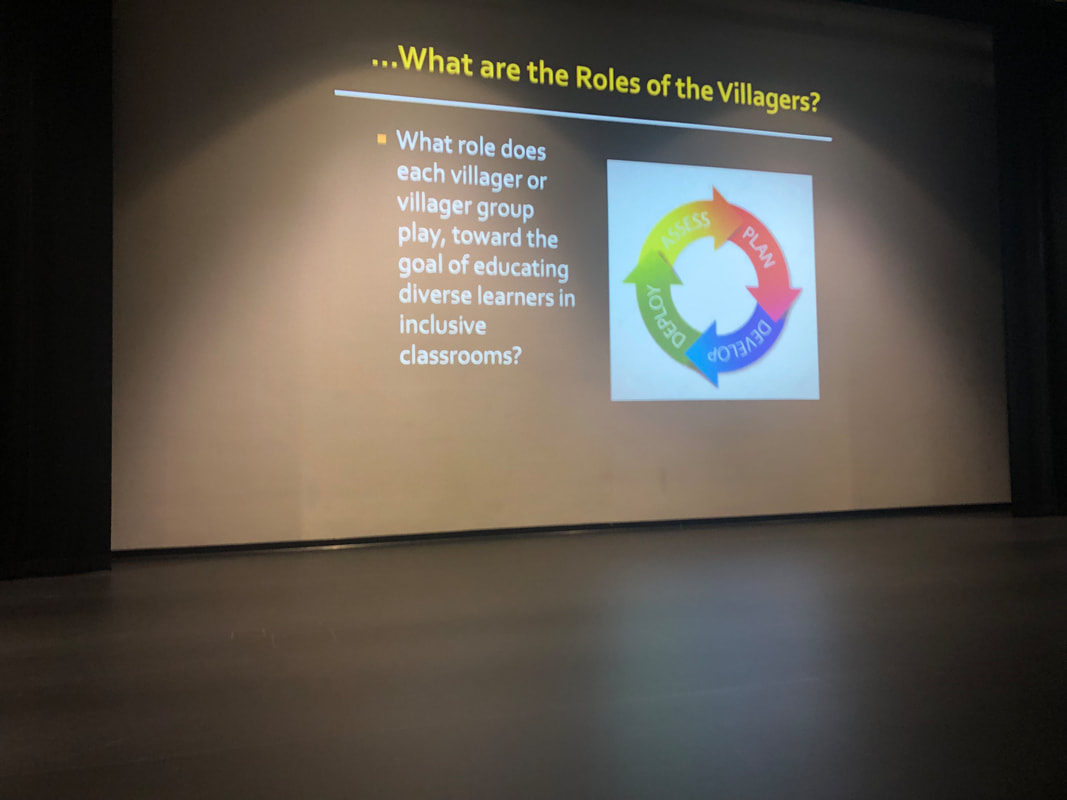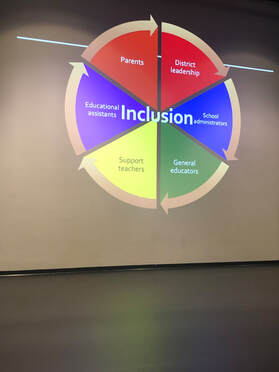Inclusive Leadership
My core values as a leader involves the promotion of inclusive, equitable and meaningful educational experiences for all students. To this end, I belong to variety of district teams who work collaboratively with Grades K to 12 school teams, parents and community partners to create supportive, inclusive, and caring learning communities where all children, specifically those children who have exceptional learning needs, can reach their full potential. This support includes both direct and indirect support to school personnel and students, professional learning and the provision of a wide range of human and learning resources in schools.
My beliefs:
My beliefs:
- embracing diversity (e.g., special education, multiculturalism, diverse learner needs) is a fundamental value that must be supported throughout public schooling.
- quality professional learning is multi-faceted and is fundamental to improving student learning.
- resources can be used most effectively to enhance capacity when they are applied in response to a systems analysis.
- developing professional capacity is critical in order to embrace diversity in public schooling
- students thrive in environments where they feel safe, nurtured and respected. All students, even those who have learning needs and extraordinary life circumstances, can do well when they are physically comfortable, mentally motivated and emotionally supported.
Examples of practice
Champions for Inclusive Leadership Conference
|
Summer Conference for Vancouver School Administrators
August 20-21, 2019 at Kitsilano Secondary, Vancouver, BC.
|
The Key to Inclusive Leadership, March 2020
The following article that was written by Juliet Bourke and Andrea Titus outlines a cluster of six signature traits that inclusive leaders have. These all resonate with me which is why I would like to share with you!
- Visible commitment: They articulate authentic commitment to diversity, challenge the status quo, hold others accountable, and make diversity and inclusion a personal priority.
- Humility: They are modest about capabilities, admit mistakes, and create the space for others to contribute.
- Awareness of bias: They show awareness of personal blind spots, as well as flaws in the system, and work hard to ensure a meritocracy.
- Curiosity about others: They demonstrate an open mindset and deep curiosity about others, listen without judgment, and seek with empathy to understand those around them.
- Cultural intelligence: They are attentive to others’ cultures and adapt as required.
- Effective collaboration: They empower others, pay attention to diversity of thinking and psychological safety, and focus on team cohesion.


